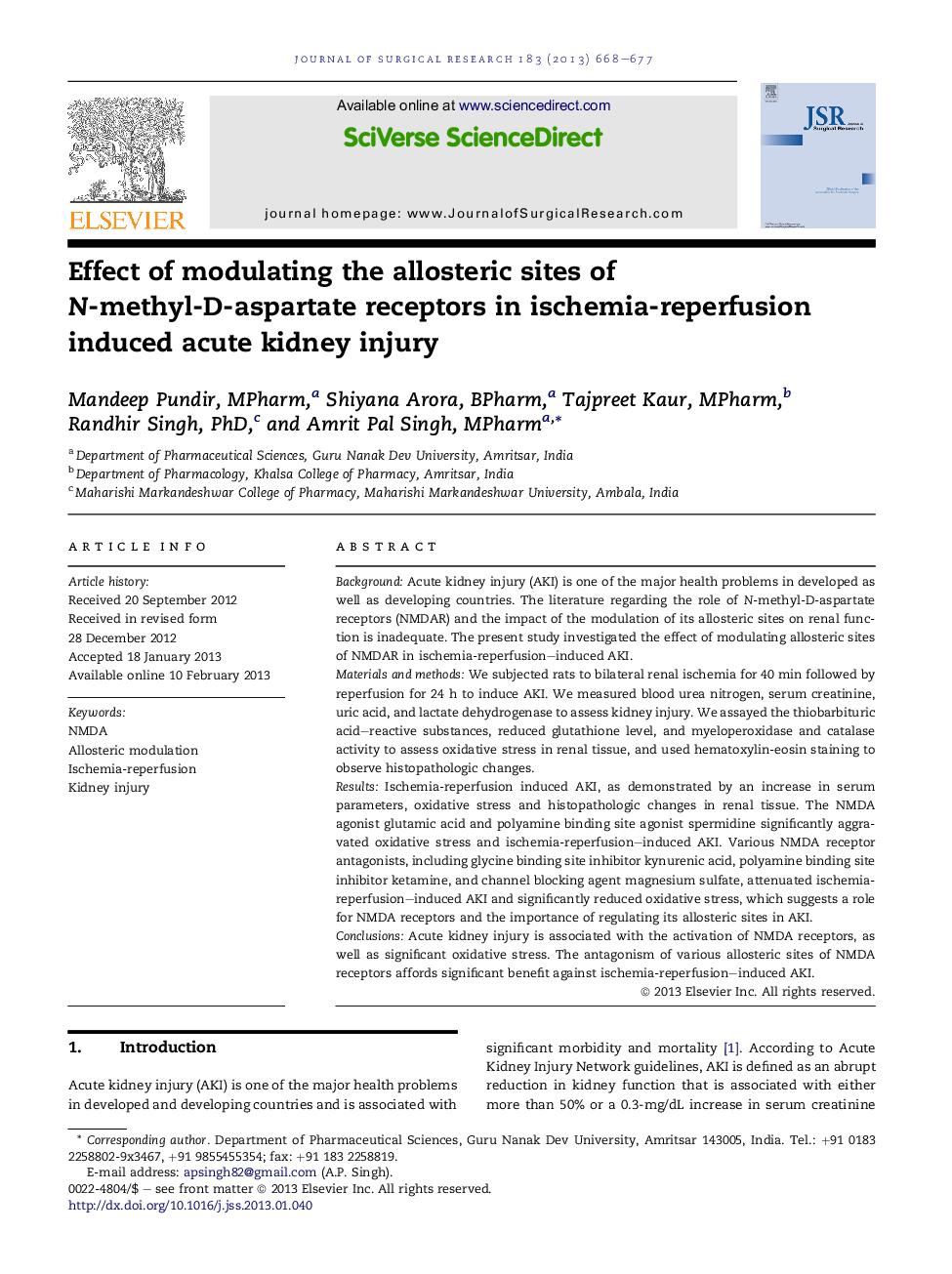| Article ID | Journal | Published Year | Pages | File Type |
|---|---|---|---|---|
| 4300878 | Journal of Surgical Research | 2013 | 10 Pages |
BackgroundAcute kidney injury (AKI) is one of the major health problems in developed as well as developing countries. The literature regarding the role of N-methyl-D-aspartate receptors (NMDAR) and the impact of the modulation of its allosteric sites on renal function is inadequate. The present study investigated the effect of modulating allosteric sites of NMDAR in ischemia-reperfusion–induced AKI.Materials and methodsWe subjected rats to bilateral renal ischemia for 40 min followed by reperfusion for 24 h to induce AKI. We measured blood urea nitrogen, serum creatinine, uric acid, and lactate dehydrogenase to assess kidney injury. We assayed the thiobarbituric acid–reactive substances, reduced glutathione level, and myeloperoxidase and catalase activity to assess oxidative stress in renal tissue, and used hematoxylin-eosin staining to observe histopathologic changes.ResultsIschemia-reperfusion induced AKI, as demonstrated by an increase in serum parameters, oxidative stress and histopathologic changes in renal tissue. The NMDA agonist glutamic acid and polyamine binding site agonist spermidine significantly aggravated oxidative stress and ischemia-reperfusion–induced AKI. Various NMDA receptor antagonists, including glycine binding site inhibitor kynurenic acid, polyamine binding site inhibitor ketamine, and channel blocking agent magnesium sulfate, attenuated ischemia-reperfusion–induced AKI and significantly reduced oxidative stress, which suggests a role for NMDA receptors and the importance of regulating its allosteric sites in AKI.ConclusionsAcute kidney injury is associated with the activation of NMDA receptors, as well as significant oxidative stress. The antagonism of various allosteric sites of NMDA receptors affords significant benefit against ischemia-reperfusion–induced AKI.
